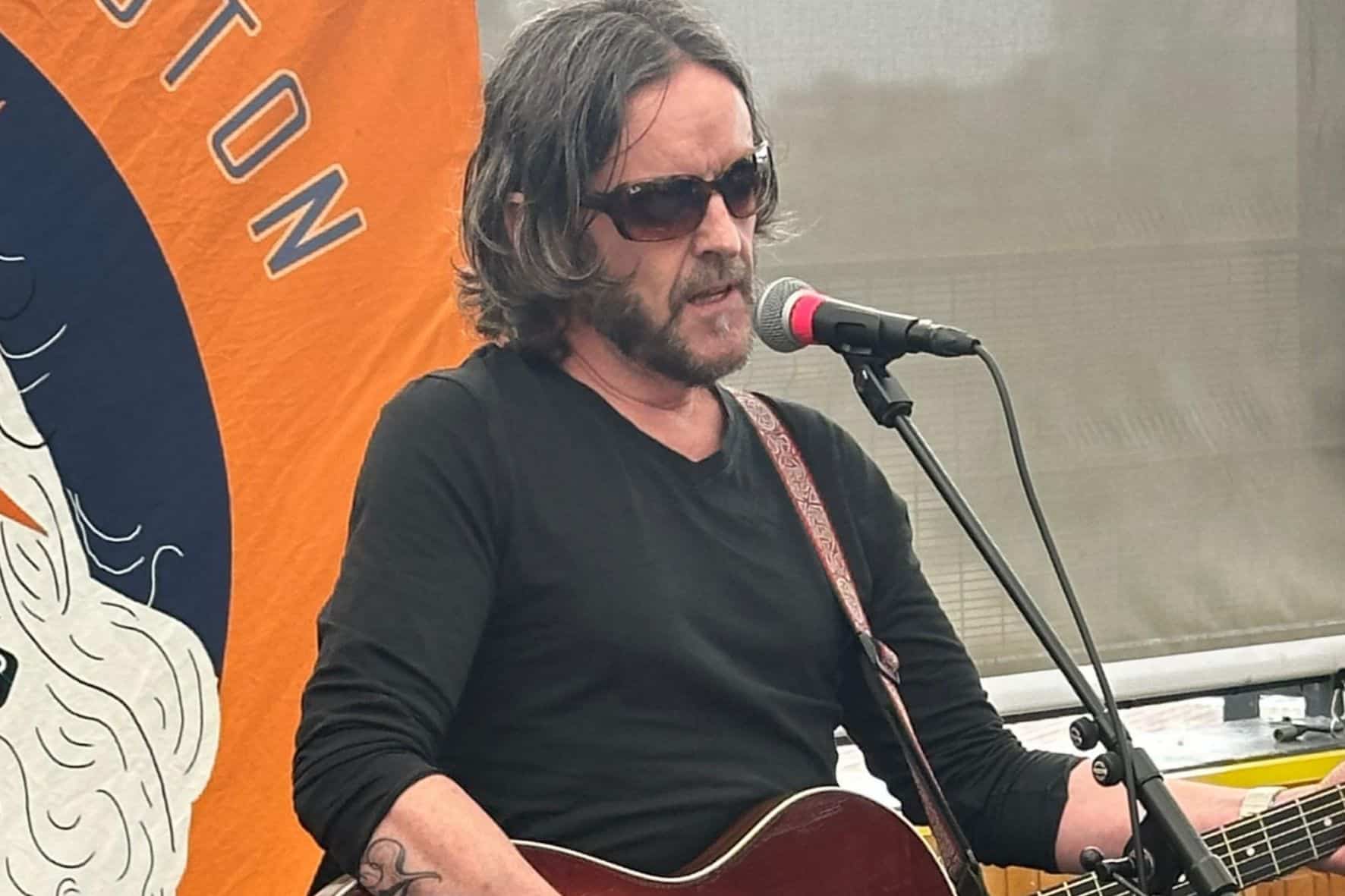Sugardrive, and its frontman Paul E Flynn, made some of the most important music in South Africa in the 90s

It was the 90s. The winter of 1996 to be precise, and Sugardrive had just been sucker-punched in the media. The band was being painted as has-beens when compared to the era’s other SA music greats like the Springbok Nude Girls, Lithium and Squeal.
“We had to get better,” said frontman Paul E Flynn. “We were viewed as having been left behind.”
It was intervention time, and the band looked beyond hard rock to find new impetus. “Widening our influences was our approach. We are talking ‘Violator’-era Depeche Mode and Massive Attack.”
It took some time, but by May the following year, Sugardrive was in the studio recording Sand.Man.Sky, an album that would become a defining moment in South African rock.
“We knew we had to make a new sound,” Flynn said. “Ten Feet High was probably the defining track on that album and it still sounds sexy as f**k.”
New sound for rock music
It was a new sound for rock music and in many ways a world first. Artists like U2 followed with experimental marriages between rock and electronica. But here, in Mzansi, Sugardrive did it first. And it was brilliant. Later came When I Died, I Was Elvis and the birth of Disco Lazarus, written in a single day.
“We knew right away it had the stuff. Makes you want to hit the floor for some serious hoofing.”
The music catapulted Sugardrive into the local music industry stratosphere. But it wasn’t the kind of glitzy red carpet fame that followed, but the supermarket kind.
“The first time I got recognised was in the local Spar while grabbing some groceries,” he said. “Later, a different supermarket, and Disco Lazarus was playing over the tannoy. Someone asked how it felt to hear my own tune while buying Aquafresh. Fame was cool, I guess.”
Rock in the 90s
Beyond doing it all in one, mum, the 90s were about plaid shirts, patched jeans and flannel. It was grunge, sexy pop and a political mixed bag. Flynn remembers it with affectionate disdain.
“Aw man, the whole grunge look was a bit kak,” he said. “Tatty shirts, scruffy long hair with a cap, and shorts. What up with that? I used to adjust my own jeans with a needle, thread, scissors and I went through a phase of making them flare at the bottom. Seventies vibes. Super cool.”
But the music was world-changing.
Tinned tuna and life on the road
In those years Sugardrive’s time was defined by van rides, cheap eats and unpredictable gigs.
“We were on the road a lot, so the food thing was always about trying to eat healthily and cheaply. We ate a lot of canned tuna, yoghurt, biltong, and nuts. These were our staples,” he said.
“Then whatever the venue throws your way as part of the hospitality rider, in other words what we get to eat where we perform, supplemented our meals. At home I have always been a meat and potatoes man, keep it simple.”
ALSO READ: 90s rock icons reunite for The Hangout Fest 2025
The nineties are now three decades ago, and Flynn said that he’s evolved as an artist, though perhaps not in the way people imagine.
“Technology has changed the way I write songs,” he said. “It used to be a dictaphone and a Thesaurus, now it’s GarageBand and a Wi-Fi connection. Being able to create high-quality recordings at home is both a blessing and a curse. Seems I end up spending too much time arranging and mixing shittily written songs instead of perfecting melody and harmony.”
Think Simon and Garfunkel doing Joy Division
Before music and a life on stage, Flynn was a research and development scientist. These days, his day job is medical writing, but music remains a constant.
“I play regularly with Absinthe, the acoustic alternative cover band I share with Cito from Wonderboom,” he said. “Think Simon and Garfunkel doing Joy Division. I have also been working on that difficult second solo album… for about the last 10 years.”
Flynn will share the stage with some of the bands that shaped an era at The Hangout Fest. No Friends of Harry, Squeal and Henry Ate along with Plum make for a reunion of 90s legends that promises nostalgia, grit, and the same raw authenticity that once shook South African music.
“I’ll probably be playing Ten Feet High and Disco Lazarus, but also some solo numbers,” he said. “Expect a moody affair with a quasi-religious feel.”
He said that the live rock revival, seen both here and around the world, is both natural and necessary.
“The legacy live rock scene has grown a lot because there’s a need for that sound,” he said. “Nowadays music is dominated by solo artists, not bands, and the sound is mostly some or other take on pop or R&B. New young bands playing rock aren’t hitting the mainstream, because the paradigm is out. But we’re now the old purveyors of a music style that doesn’t die.”
NOW READ: Henry Ate reunites at Legends Fest with first shows in years
Support Local Journalism
Add The Citizen as a Preferred Source on Google and follow us on Google News to see more of our trusted reporting in Google News and Top Stories.






